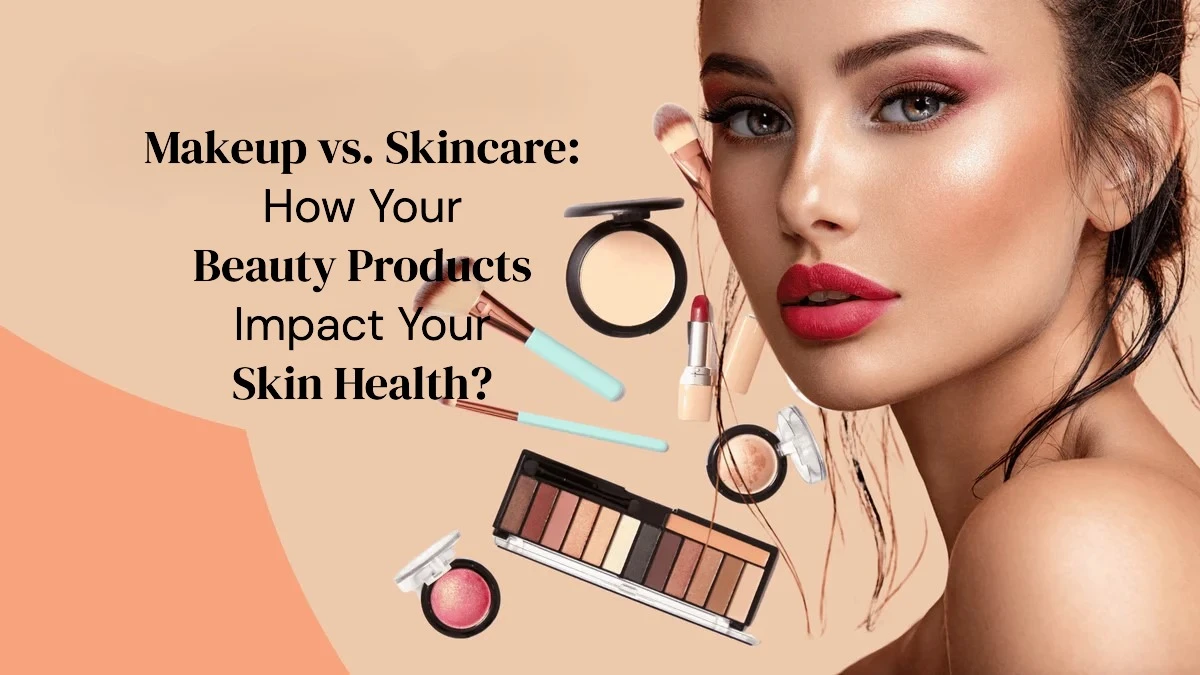Do Makeup Products Affect Your Skincare?
Do Makeup Products Affect Your Skincare?
Yes, makeup products can significantly impact your skincare—both positively and negatively. While makeup is a powerful tool for enhancing beauty and boosting confidence, it interacts closely with your skin and the products you use daily. The way makeup is formulated, how it's applied, and how it's removed can all influence your skin health.
1. Makeup Can Clog Pores If Not Chosen Wisely
Some makeup products, especially heavy foundations or those not labeled non-comedogenic, can clog pores and contribute to breakouts or acne. This is particularly true for oily or acne-prone skin types.
Tip: Look for products labeled non-comedogenic, oil-free, or suitable for sensitive skin. Mineral makeup is often a gentler option.
2. It Can Irritate Sensitive or Allergic Skin
Makeup may contain fragrances, dyes, or preservatives that can irritate sensitive skin or cause allergic reactions such as redness, itching, or rashes.
Tip: Always check the ingredient list. Avoid known irritants and opt for hypoallergenic, fragrance-free, or dermatologist-tested products if you have reactive skin.
3. Poor Removal Can Harm Your Skin Barrier
One of the biggest skincare issues related to makeup is not removing it properly. Sleeping in makeup or using harsh cleansers can clog pores, increase inflammation, and damage your skin’s protective barrier.
Tip: Follow a double cleansing routine—use a makeup remover (like micellar water, cleansing balm, or oil) followed by a gentle cleanser. This ensures your skin is clean without being stripped of moisture.
4. Some Makeup Can Support Skin Health
Many modern makeup products are now formulated with skincare benefits. Ingredients like hyaluronic acid, vitamin C, niacinamide, or SPF are often included to hydrate, brighten, or protect the skin.
Tip: Choose multi-tasking makeup with added skincare benefits, especially for everyday wear. However, these do not replace your core skincare steps like serums or moisturizers.
5. Layering Makeup Over Skincare Requires Compatibility
Your skincare products form the base for makeup. Using thick or greasy creams can make makeup slide or pill, while strong actives like retinoids or AHAs right before makeup can increase sensitivity.
Tip: Let your skincare absorb fully before applying makeup. Choose lightweight, fast-absorbing products during the day, and save heavier or exfoliating treatments for nighttime.
6. Dirty Tools and Old Products Are Skincare Saboteurs
Old, expired makeup or dirty brushes can harbor bacteria, leading to breakouts and infections. They can undo even the best skincare routine.
Tip: Clean brushes and sponges weekly. Replace mascara every 3 months, and check the expiry date on all makeup items.
Conclusion
Makeup and skincare are closely linked. While makeup can enhance your appearance, improper product choices or bad habits can sabotage your skincare efforts. By choosing skin-friendly makeup, removing it gently, and practicing good hygiene, you can enjoy the best of both worlds—flawless makeup and healthy skin.

Related Blog
What Causes Oily Skin and Can It Be Managed Naturally? Exploring Root Causes and Gentle Solutions
Aug 2, 2025 by Admin
General
What Are the Signs That You Have Sensitive Skin? Key Symptoms to Help You Identify This Delicate Skin Type
Aug 1, 2025 by Admin
General